Business & Management
Economists Offer Policy Recommendations to Curb Youth Unemployment in Uganda
Published
3 years agoon
By
Jane Anyango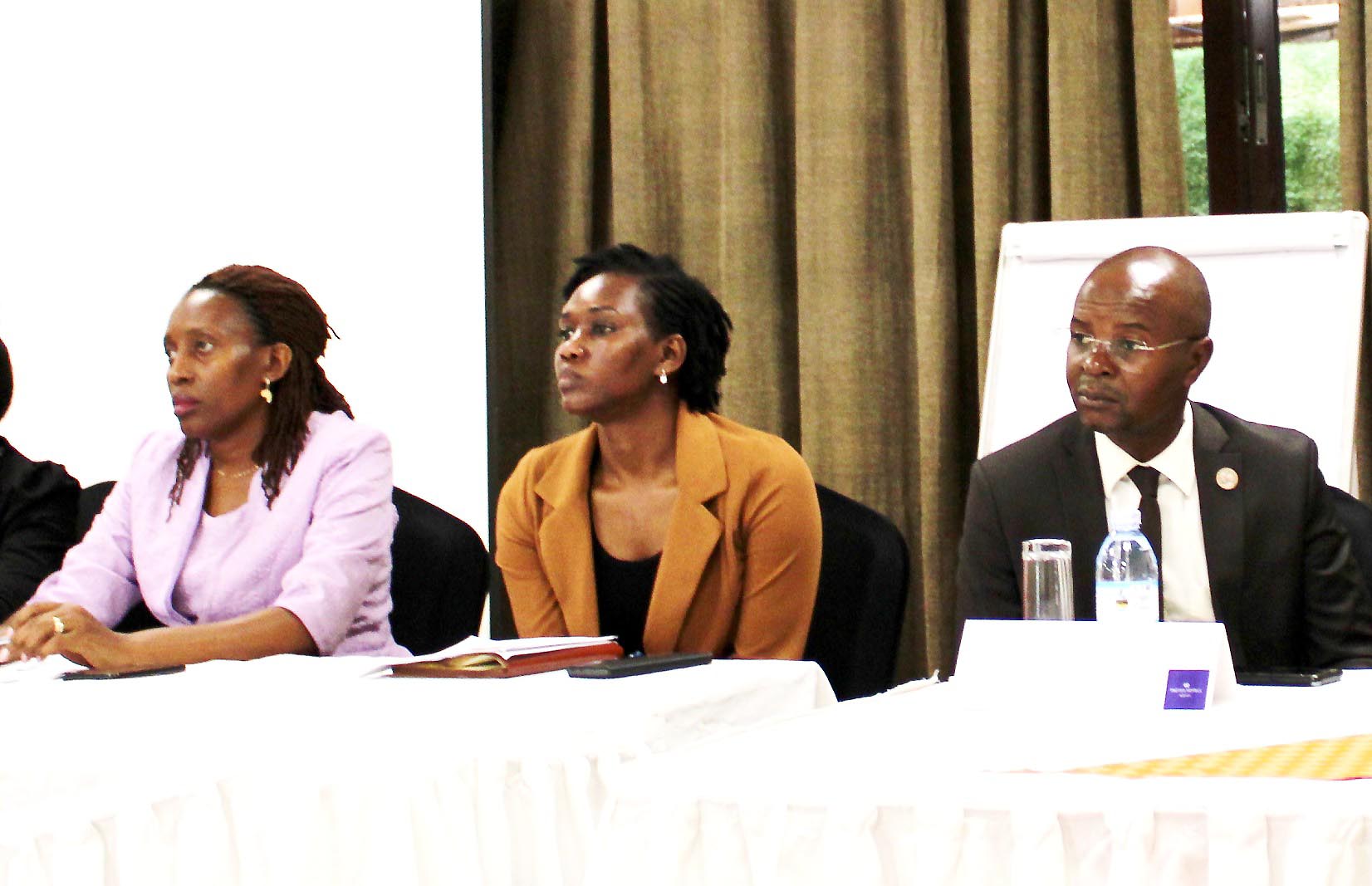
Economists from the Makerere University’s School Economics have provided policy options to help mitigate youth unemployment in Uganda.
A team of researchers led by Prof. Edward Bbaale as Principal Investigator assisted by Dr. Susan Kavuma, Peter Babyenda, Brenda Kiconco, Anitah Kyamugaba , Hennery Sebukeera and Nakigudde Claire under took a research project titled, ‘ “Empirical Review of Youth Employment Policies in Uganda”with technical and financial support from partnership for economic policy Nairobi Kenya funded by Mastercard Foundation.
The study looked at insights from different people on how youth unemployment and under employment can be solved. The research project intended to review the youth employment policies, legislations, interventions and programs with the aim of identifying the best practices for promoting youth employability, productivity, and opportunities among the youth.
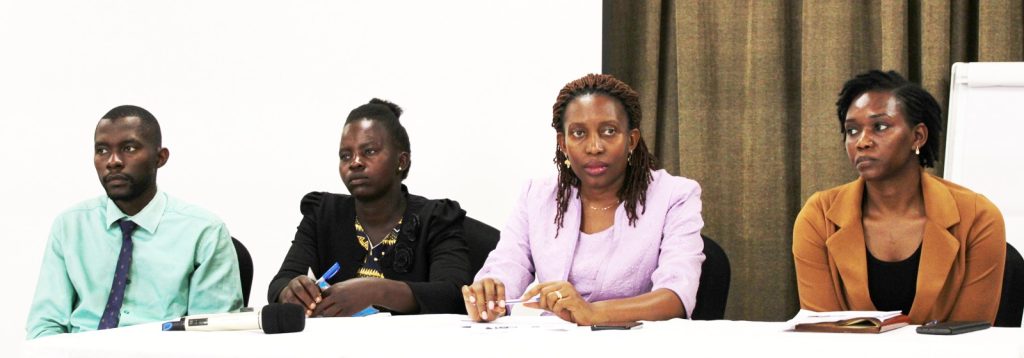
The researchers worked closely with the different Institutional framework concerned with youth affairs including in the Ministry of Gender, Labour and Social Development and the Uganda Bureau of Statistics, Ministry of Education and Sports, National Planning Authority, Federation of Uganda Employers, National Organization of Trade Unions and parliament among others
The study findings were presented during the dissemination workshop held on 9th November 2022 at Protea Hotel in Kampala to members of the academia, representatives from government ministries, departments and agencies, the Private sector, civil society organizations, representatives of the youth from different divisions of Kampala and other districts and key collaborators.
The dissemination workshop was intended to validate the findings of the study through contributions, corrections,and an evaluation of the opportunities, challenges, chances, the gaps, costs of and thorough practical policy options with the aim of enriching the report and the policy recommendations in particular to government.
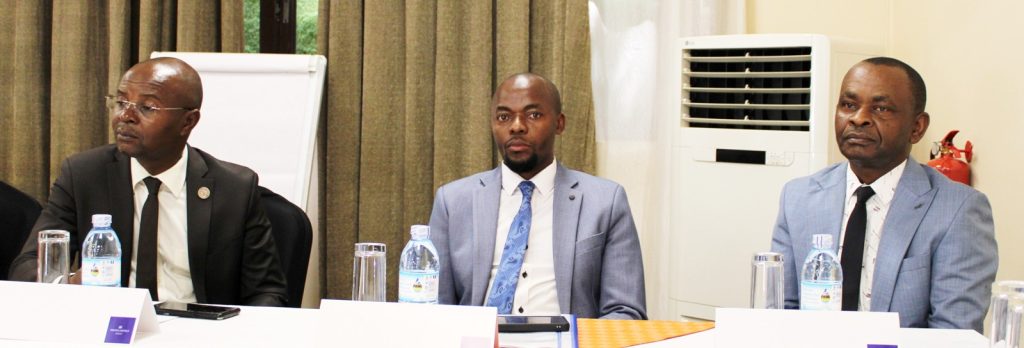
Representing the Principal, College of Business and Management Sciences, the Dean School of Economics and also PI Prof. Edward Bbaale noted that youth unemployment and under employment is one of the policy issues that warrant due attention.
He observed that Uganda is one of the youngest and fastest growing populations in the world with 54% of the population below 18 years of age and yet the population is growing very fast at 3.4 %.
Bbaale added that Uganda is also faced with a serious problem of high school dropout rate. Data from the Ministry of Education indicates that on average one million pupils that enroll in primary one, only 600 thousand sit the primary leaving examination and this number reduces to 300 thousand at the Uganda Certificate of education and reduces further to 100 thousand to those that go for the advanced certificate.
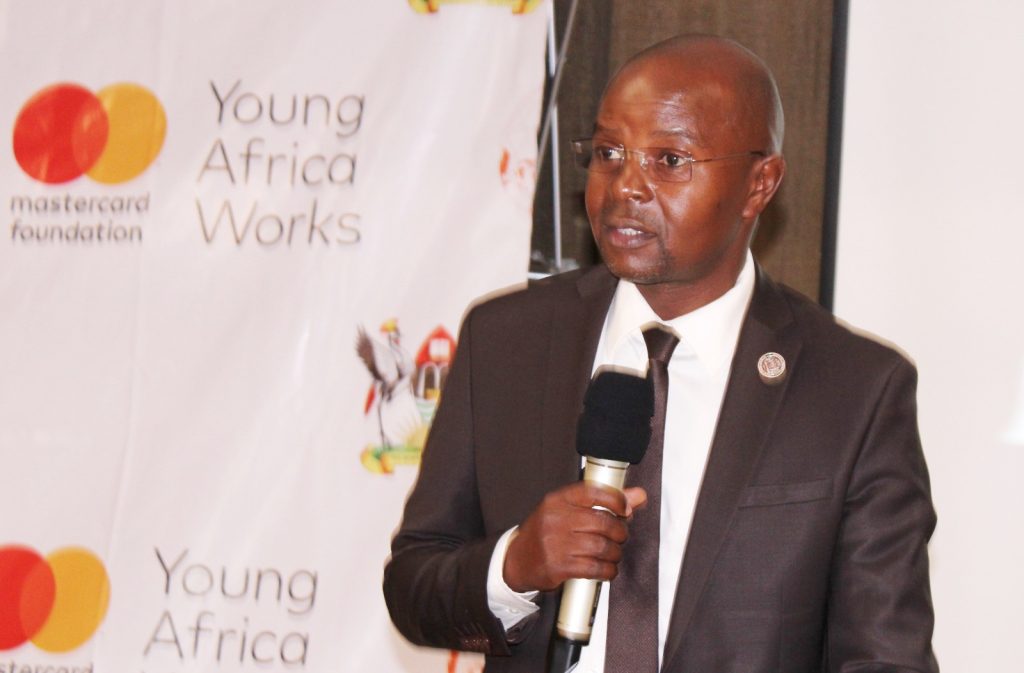
“The question is where these young men do and women go and who is the messiah. Is TVET, the different skilling programmes the messiah for Uganda? and more broadly even those that graduate at higher level, the question is that whether the problem is at the demand level to the extent that the economy is so much contracted and that there is no space for people to come and take employment meaning that the economy is growing without creating jobs”. Bbaale questioned.
Aware that the services sector is driving growth in Uganda and the agricultural sector is well behind services and industry as far as GDP is concerned, Bbaale noted that this means that there has been sectorial shift in GDP composition- at one time it was agriculture ahead of industry and services but now we have services ahead of the two.
“Whereas we have had the sectorial shifts in the GDP composition, there are no sectoral shifts in employment and majority of our people still depend on agriculture and there is a smaller cake despite its holding 60% of our people coming with questions of low productivity and poverty.
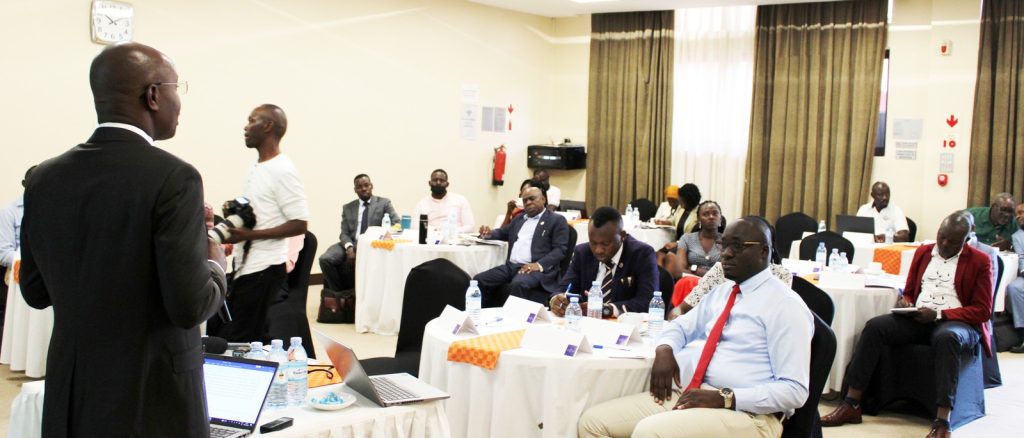
And so given that, if majority of Ugandans are not employed in the services sector which is leading the GDP composition, can we say our economy is having a jobless profile? We are growing without jobs and then on the other hand, can we say it is the supply side and skills mismatch? Do those people that graduate every year in universities and other institutions match the available opportunities?.Prof. Bbaale questioned.
Prof. Bbaale also stressed that the issue of youth unemployment and under employment is topical and has gone on for sometime but not leading the same in finding a lasting solutions for the youth unemployment problem.
He congratulated the research team for successfully implementing the study and partners – the Mastercard Foundation through the partnership for economic policy in Nairobi for sponsoring the different activities of the project as well as the stakeholders from MDAs, Private sector, CSOs and development partners for contributing wonderful ideas.
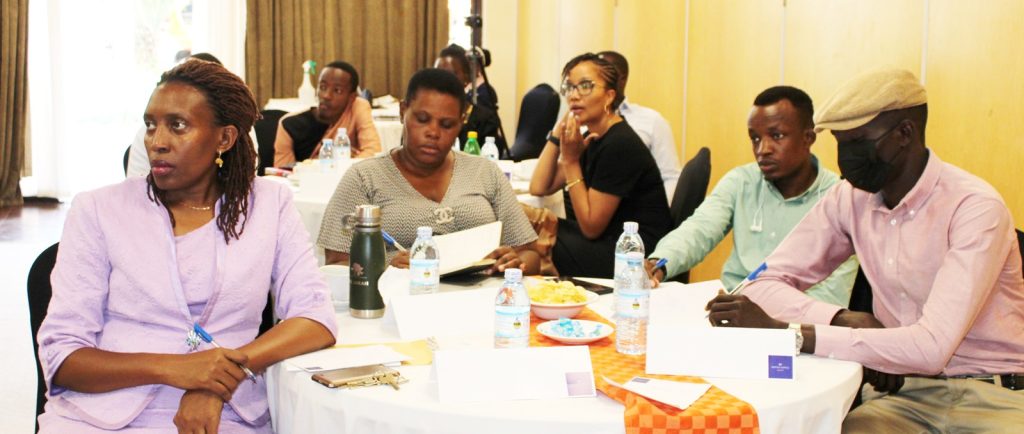
Unemployment associated with Labor market information system, curriculum design and population growth
The Assistant Commissioner in charge of Youth Affairs in the Ministry of Gender, Labour and Social Development Kyateka Mondo thanked the PI and team for putting the research together saying, they are looking forward to receiving what the university thinks is the solution to unemployment question in Uganda.
In addition to addressing the issue of labour market information system, the commissioner observed that it is prudent for training institutions to interface with employers while designing the curriculum but also address the issue of population growth.
“The problem in Africa is that we train today what was needed for yesterday. Are the training institutions in touch with the people who employ? Do you have a time where we interface with the Mukwanos and UMAs of this world and all the people who need the work force?
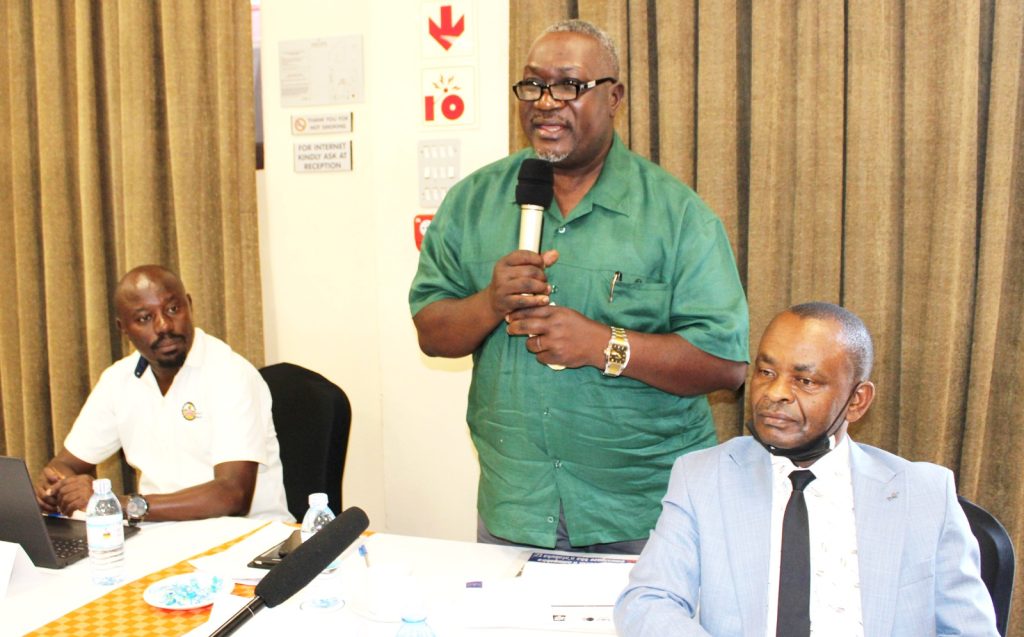
Second,… we are likely not to break even until we address the issue of population growth. As long as we are producing as if there is no tomorrow. As long as we believe in Genesis that go out there and multiply and fill the world.How are you going to prepare and skill them to get quality education. And the man who tells you to go and fill the world produced only one son –Jesus Christ.”, Mondo stated adding that:
“.. until the population question is addressed and until the training institutions sit together with who is going to employ their products, , there will be nothing new that we are going to hear. The skills given at training institutions do not match the labour markets. So until we move away from the book of lamentations to the book of acts and we act.
Fix the issue of so many children, fix the issue of poverty among our people, fix the issue of a functional and prudent labour market information system. We need action today to bring hope to so many young people in this country but we also have to do mindset deconstruction”. Mondo asserted.
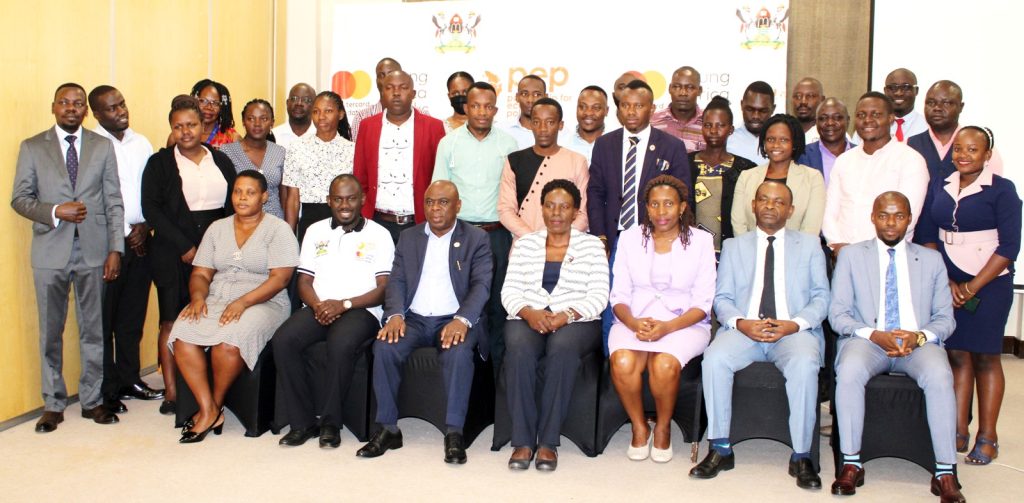
Mondo further observed that over 45 universities are churning out young people every year, operating under a jobless economic growth in that, the economy is not producing the jobs that are badly needed. He added that if unemployment question is fixed, many other problems like poverty, drug abuse early pregnancies, theft, suicide would have been fixed.
Formal employment and trends in youth unemployment in Uganda
Presenting the study findings Peter Babyenda noted that formal employment share of government jobs declined from 6.8% in 2012/13 to 6.5% in 2016/17 while total formal private employment declined from 200,000 jobs in 2012/13 to 141,000 in 2016/17. In 2016/17, only 13,000 (9%) youth had a formal private job.
On trends in youth employment, Babyenda reported a fluctuating Labour Force Participation Rate – 57% (2016/17), 66% (2017/18), 62% (2018/19), and an increasing youth unemployment rate – 13% (2016/17), 18% (2017/18), 17% (2018/19)
Babyenda presented worrying statistics on Youth neither in Employment nor in Education or Training (NEETs) estimated at 39%. This is worrying – where are they? He said there are twice young ladies in NEET as men largely found in in Greater Kampala, Northern Uganda and Western region which is a big threat to Uganda’s social cohesion and political stability.
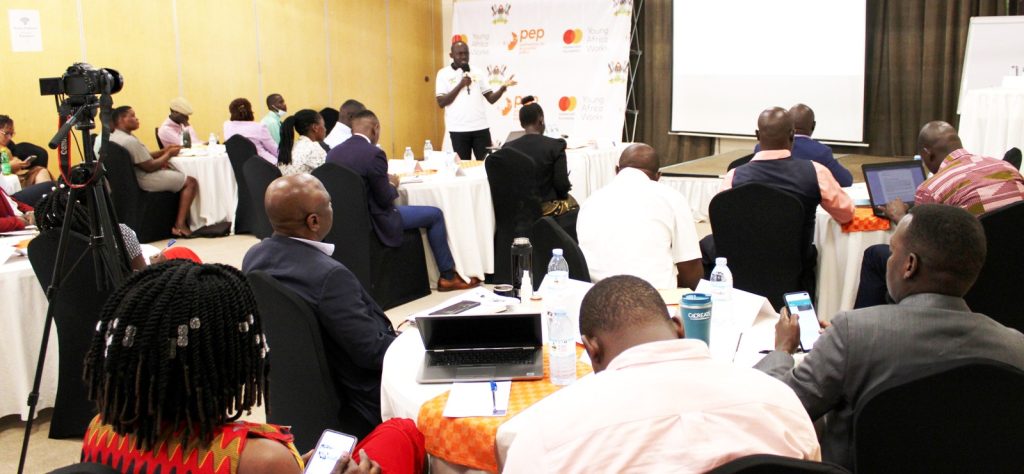
NEETS according to Babyenda are largely attributed to low educational attainment (including among their parents), living in deprived neighborhoods, low socio-economic status and other barriers to participation like pregnancy or disability.
“The 2018/19 Annual Labour Force Survey report reveals that almost half of the youths (46%) are not qualified for the existing jobs because they do not have required skills.Low wages for youth as the median wage of public sector employees is estimated at UGX 510,000 ($134), while in Private Sector it is estimated at UGX150,000 ($39).
Existing employment policies seem universal and do not segregate persons in formal and informal sectors in their coverage. More so, there is limited evidence to show the expansion of social protection coverage in the informal sector as required by the National Social Protection Policies. It also remain unclear whether the existing youth employment programs are achieving their targets” Mr. Babyenda reported.
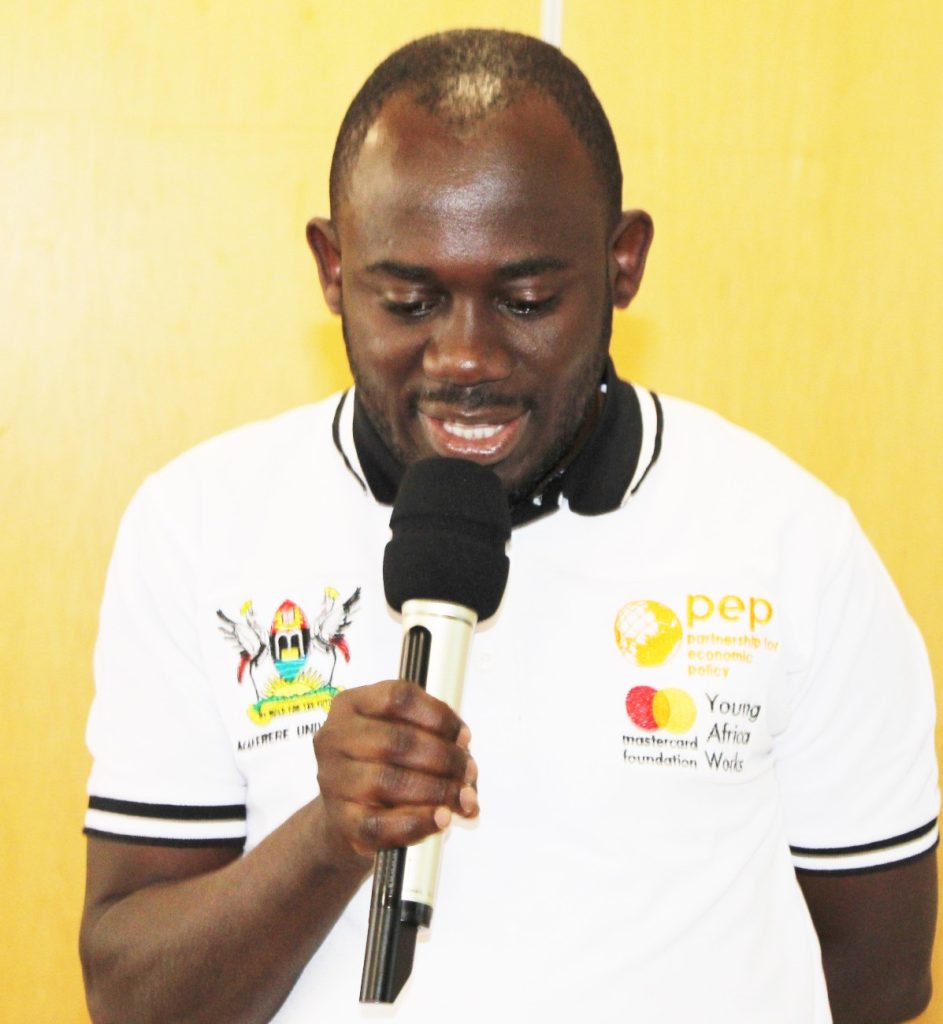
Key findings from the evaluation of the different Youth Empowerment Programs (YEP)
The study indicated that although access to youth employment funds had a positive effect on youth business expansion, there was no significant evidence of the fund’s effect on job creation.
Major stakeholders in YEP were not fully fulfilling their mandates; while on the policy front, the findings show that the youth funds have a long-term impact on its intended goals.
Promoting youth entrepreneurship according to this study should be approached holistically (not just through credit) and should target productive sectors with high employment creation potential.
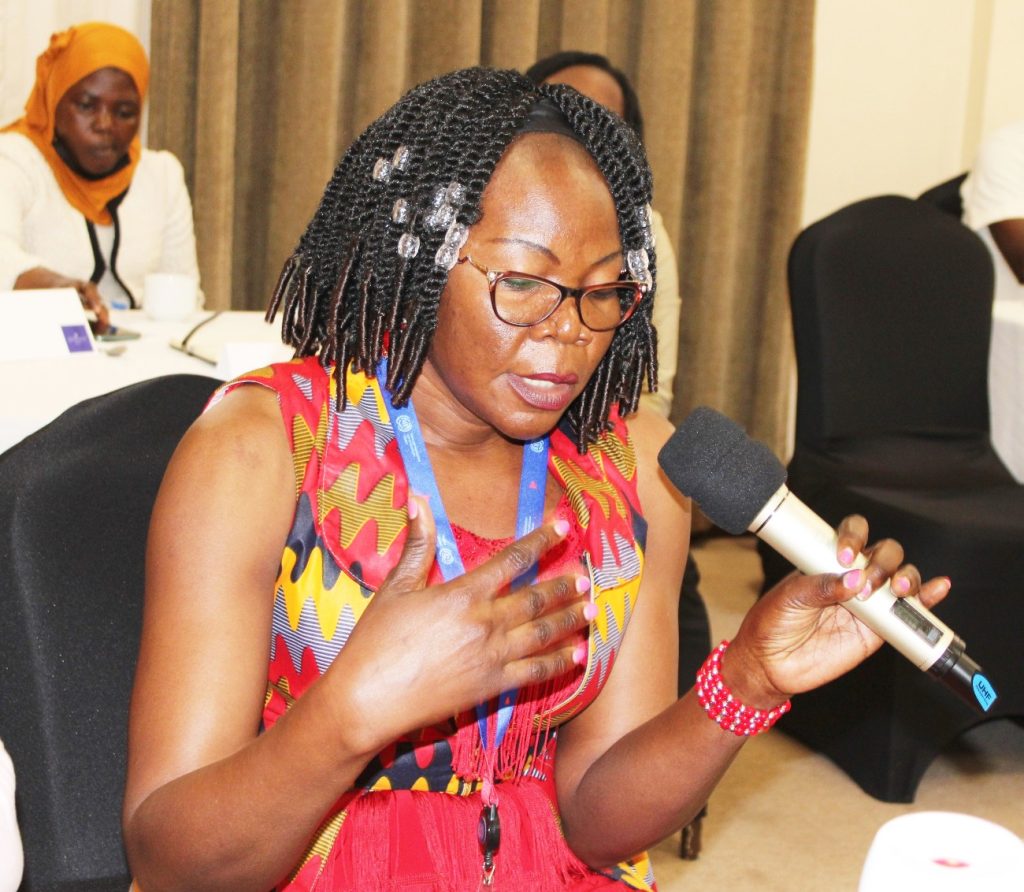
The need for a strong institutional framework including M&E and accountability frameworks and the removal of barriers to youth self-employment were also proposed.
The study disclosed a number of challenges faced by the youth involved in Youth Employment programmes and they included ; Misuse of YEP funds, limited follow-ups of beneficiaries due to inadequate monitoring and supervisory capacity, Political Interference, High default rates (failure repay loans/resolving funds) and Poor group formation dynamics
Beneficiaries according to this research, reported delayed release of funds to youth groups or beneficiaries by the ministry of finance and implementing agencies – MoGLSD, local governments, Corruption, Inadequate information on existence of youth, Education miss-match affecting youth employability AND Limited preparation of beneficiaries
The study notes that common youth challenges in Uganda include: Unemployment, underemployment and undignified work.
The study further notes that Uganda has initiated a number of Youth Employment programs over time such as the youth livelihood fund, presidential youth initiatives, youth skilling programs and free vocational education among others.
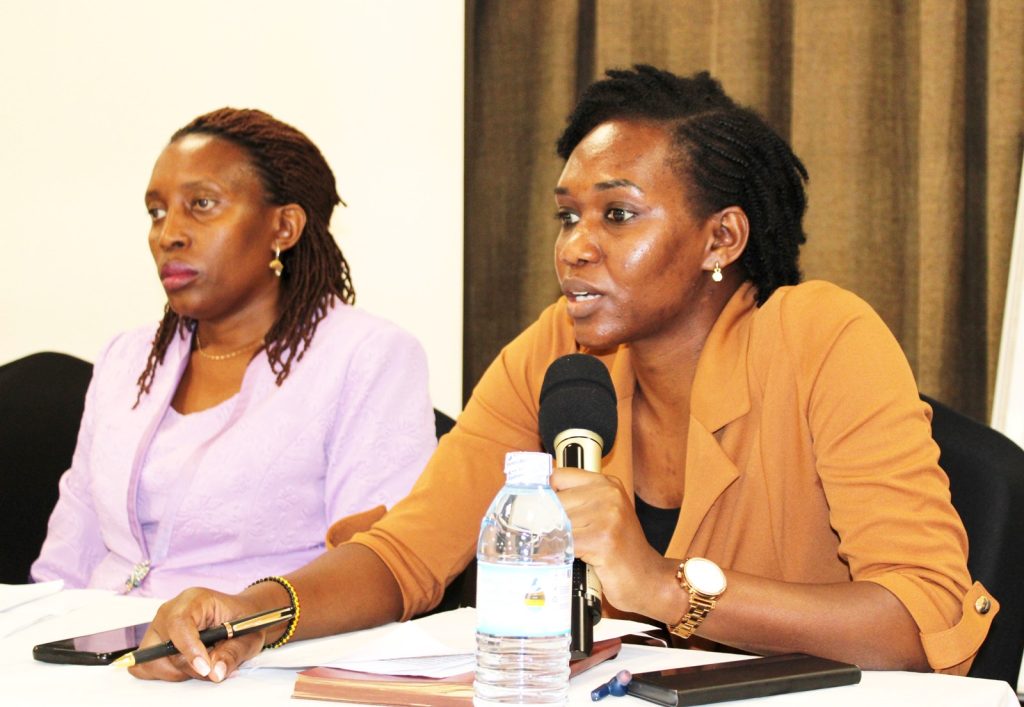
Many Youth (39%) still either not in School or employment and more among females (50.5%) and the need for specific Policy change to ensure that the youth obtain right skills for existing employment opportunities in the country.
Policy recommendations
The study recommends that government prioritise policies that create jobs and address youth unemployment/under-employment and strengthen the YEP’s Monitoring, Evaluation, Research, and Learning (MERL) system.
The study proposes the development of a clear resource mobilization strategy during the YEP design phase and expansion of YEPs into new locations with updated priority areas.
The policy initiatives should be SMART and should reinforce labour market participation, especially regarding discouraged workers and women.
Other policy recommendations include benchmarking with other countries that have succeeded; Reduce of political interferences in the bureaucratic process of the YEP implementation; Increase budget allocation to YEP and also improve the adequacy and effectiveness of the technical support unit of these programs.
In addition, the study advocates for holistic youth employment policy initiatives as opposed to piecemeal, ad-hoc, under-funded and poorly implemented programs. The programs should be rooted within a wider framework that places structural transformation of the country such as NDP III, Vision 2040, among others.
You may like
-


Olivia Nakisita and the Quiet Urgency of Adolescent Refugee Health
-


Mastercard Foundation Scholars embrace and honour their rich cultural diversity
-


Makerere Launches Scholarly Guide, Calls for Increased Research, Publication and Innovation in Africa
-
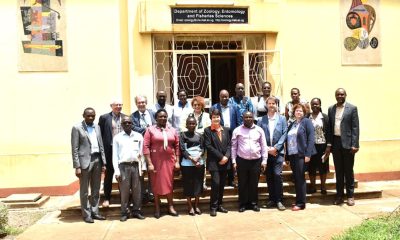

BOKU University Charts New Collaboration Strategies with Mak’s Department of Zoology, Entomology & Fisheries Sciences
-


When Birth Becomes the Most Dangerous Moment, Wanduru & the Work of Making Labour Safer
-


Study Alert: Power in Her Hands; Why Self-Injectable Contraception May Be a Game Changer for Women’s Agency in Uganda
Business & Management
VC Opens Training for MoKCC Officials on Safeguards in Procurement
Published
1 week agoon
February 10, 2026
The Vice Chancellor of Makerere University, Prof. Barnabas Nawangwe, has officially opened a one-week training for Ministry of Kampala Capital City and Metropolitan Affairs (MoKCC&MA) officials on Integrating and Managing Environmental, Social, Health and Safety (ESHS) Safeguards in Procurement.
The training, conducted by the Public Investment Management (PIM) Centre of Excellence, is funded by the World Bank and brings together officials from KCCA, metropolitan and municipal authorities under the Greater Kampala Metropolitan Area (GKMA) programme, alongside officials from central government ministries and agencies.
Opening the training, Prof. Nawangwe emphasized that safeguarding is a critical pillar of sustainable development and accountable public service delivery.
“If we get things wrong in Kampala, we affect the entire country. Everything done in this city must be well planned, socially responsible, and environmentally sound,” Prof. Nawangwe said.
Drawing from his professional background as an architect, the Vice Chancellor underscored the importance of environmental, social, and safety safeguards, noting that failure to address these issues at planning and procurement stages can lead to loss of life, stalled projects, and massive financial waste. He cited international examples where projects were halted or countries faced global pressure due to neglect of environmental and social considerations.

Prof. Nawangwe commended the World Bank for its continued partnership with Makerere University, particularly in supporting the establishment and growth of the PIM Centre of Excellence, which he described as one of the University’s flagship initiatives with visible national impact.
“I see the work of the PIM Centre in government processes, in reports, and even in Development Committee meetings. That is real impact,” he noted, adding that strengthening in-country capacity through Makerere reduces reliance on costly external consultants.
He reaffirmed Makerere University’s commitment to supporting government through research, training, and policy-relevant knowledge, stressing that continuous professional development is essential in a rapidly changing world.
The Under Secretary, Ministry of Kampala Capital City and Metropolitan Affairs, Ms. Monica Edemachu Ejua, welcomed the training, describing it as timely and necessary given the challenges faced during project implementation, particularly in road construction.
Ms. Ejua, revealed that the training was informed by real and painful experiences, including fatal accidents on construction sites, some of which could have been avoided with stronger environmental and social safeguards.
“Environmental, social, and health and safety issues must never be downplayed. These considerations must begin at procurement planning, not at implementation,” she said.
She highlighted that procurement officers, engineers, planners, accountants, and administrators must all understand safeguards, noting that infrastructure development is inherently multidisciplinary.
“Development must be a blessing to communities—not a burden,” she added.
Ms. Ejua praised Makerere University for hosting the training and the World Bank for supporting government efforts to build institutional capacity, adding that learning does not end at graduation.
World Bank: Strong Country Systems Are Key to Development Impact
Presenting on behalf of the World Bank, Ms. Christine Kasedde, a Senior Environmental Specialist, explained that the training is part of a broader effort to strengthen country systems for managing environmental and social risks in development projects.
She noted that while the World Bank has committed over USD 4 billion to projects in Uganda, weak safeguards and capacity constraints have affected implementation and disbursement.

“Environmental and social safeguards are legally binding commitments. When they are not addressed properly, issues escalate to the highest levels of government,” Ms. Kasedde explained.
She outlined how the collaboration with Makerere University has led to the development of several short professional courses across CoBAMS, the College of Agricultural and Environmental Sciences (CAES), and the College of Humanities and Social Sciences (CHUSS). These courses address gaps in social risk management, environmental sustainability, health and safety, climate risk, and procurement.
Ms. Kasedde also revealed that the partnership has culminated in the establishment of an Environmental and Social Sustainability Centre at Makerere University, which will serve as a hub for training, research, advisory services, and independent assessments.
Procurement as a Tool for Sustainable Development
Representing the Public Procurement and Disposal of Public Assets Authority (PPDA), Ms. Mercy Kyoshabire, Director for Procurement and Disposal Capacity Building, emphasized that public procurement accounts for over 60 percent of government expenditure and must therefore be leveraged as a tool for sustainable development.
She reminded participants that environmental, health, and social safeguards have been embedded in standard bidding documents since 2019, urging procurement professionals to integrate sustainability throughout the procurement cycle.
“Sustainability is about the three Ps—People, Profit, and Planet. Procurement decisions made today should not compromise future generations,” she said.
Ms. Kyoshabire reaffirmed PPDA’s commitment to collaboration and capacity building, particularly with centres of excellence such as Makerere University.
A Model of Interdisciplinary Collaboration
The training also drew strong support from the Principal of CAES, represented by Dr. Patrick Byakagaba and, Principal CHUSS, Prof. Helen Nkabala, who emphasized Makerere University’s shift away from siloed approaches toward interdisciplinary collaboration in addressing national development challenges.

Prof. Edward Bbaale, Principal Investigator of the PIM Centre of Excellence, noted that the training responds to critical gaps identified at the pre-investment and procurement stages of public projects, particularly as Uganda pursues an ambitious growth agenda amid climate and social risks. Dr. John Sseruyange, the manager of PIM Centre of Excellence said, the week-long training is expected to strengthen the capacity of KCCA and GKMA implementing entities to integrate and manage environmental, social, health, and safety safeguards across the procurement and project implementation cycle, ultimately improving service delivery and protecting communities.
Business & Management
Building Skills for Better Public Investments: PIM Centre Trains Public Sector Economists
Published
1 week agoon
February 9, 2026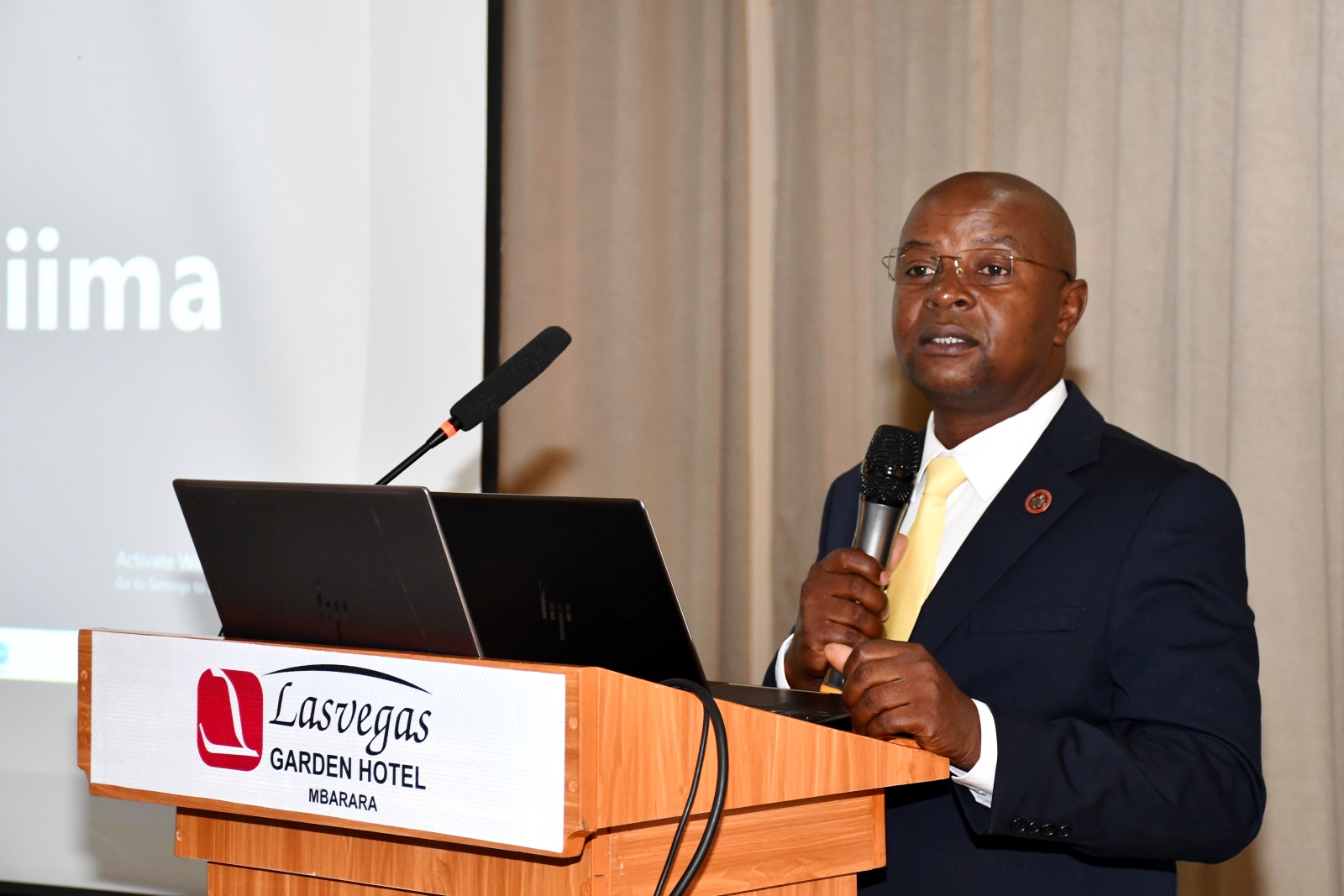
Away from the bustle of the city, in the calm setting of Mbarara, over 30 public service economists have gathered with a shared purpose: to strengthen the skills that shape how public resources are invested and how national development priorities are realised.
The two-week executive training on Economic Appraisal and Stakeholder Analysis, organised by the Public Investment Management (PIM) Centre of Excellence at Makerere University, officially commenced this week, bringing together public officers from across government, academia, state agencies, and civil society. At its core, the programme seeks to answer a fundamental question—how can Uganda ensure that every shilling invested in public projects delivers maximum economic and social value?
The training draws expertise from Makerere University, Cambridge Resources International (CRI), the Ministry of Finance, Planning and Economic Development (MoFPED), and the National Planning Authority (NPA), reflecting a strong partnership between academia, policy makers, and development practitioners. Participants represent a wide cross-section of institutions, including the Ministry of Internal Affairs, Uganda Tourism Board, MoFPED, Kiira Municipality, Wakiso Local Government, Kyambogo University, Makerere University, UEDCL, UNCST, UDC, the Uganda Police Force, Parliament of Uganda, and several civil society organisations.
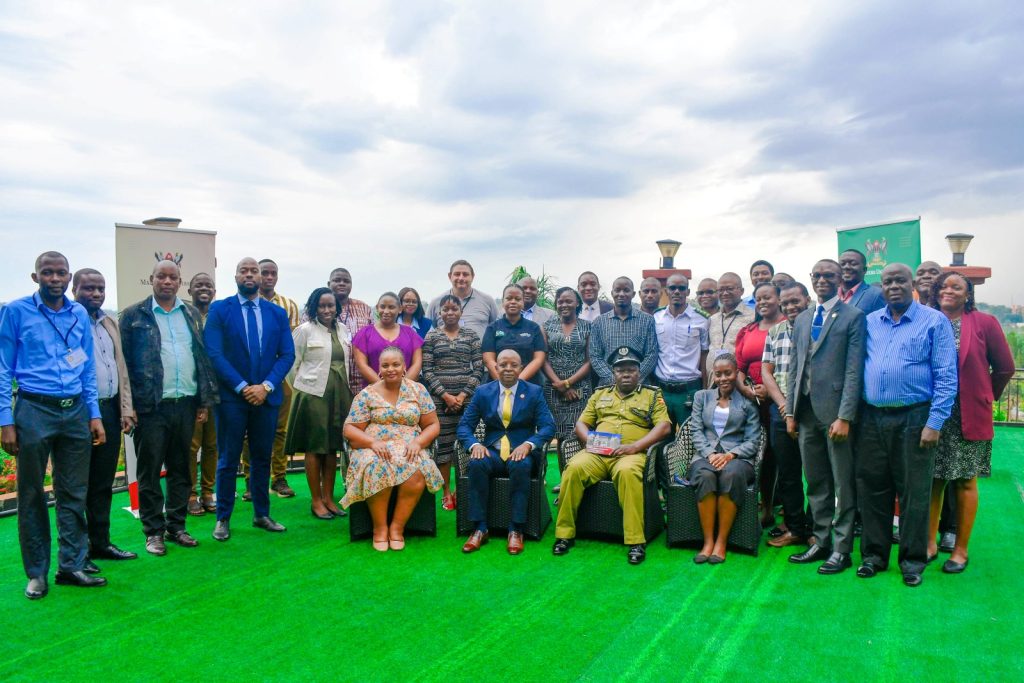
Opening the programme on behalf of the Permanent Secretary and Secretary to the Treasury, Commissioner PAP, Ms. Gertrude Basiima, explained that the choice of venue was intentional. Holding the training away from the city, she noted, allows participants to concentrate fully and engage more deeply with the intensive content. Previous trainings held in similar settings, she added, had yielded positive results.
Ms. Basiima highlighted that the training is part of a long-standing strategic partnership between the Ministry of Finance and the PIM Centre of Excellence at Makerere University, housed in the School of Economics. Established in 2016, the collaboration was informed by diagnostic assessments that revealed persistent gaps in Uganda’s public investment management system—particularly in project identification, appraisal, selection, and implementation.
“These gaps are not merely technical,” she observed. “They determine whether public investments truly transform communities or fall short of their promise.”
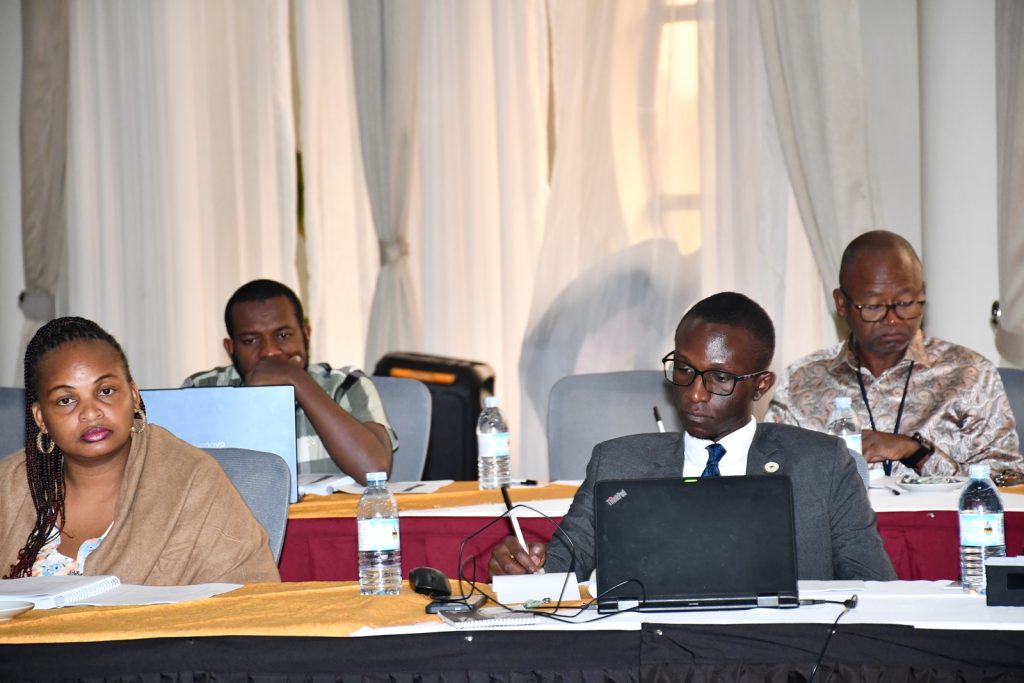
The training builds on earlier modules in financial appraisal, equipping participants with advanced competencies in economic appraisal and stakeholder analysis. Through practical case studies and hands-on exercises, participants will explore demand forecasting, economic pricing, and sector-specific appraisal techniques applicable to energy, water, transport, and agriculture. By the end of the programme, participants are expected to competently conduct cost-benefit analyses and assess whether proposed projects merit inclusion in the national budget.
Ms. Basiima emphasised that while many feasibility studies are prepared by consultants, public officers must be able to interrogate, quality-assure, and defend these studies before decision-making bodies such as the Development Committee. The training, she said, is designed to position participants to do exactly that.
For Prof. Edward Bbaale, Director of the PIM Centre of Excellence, the training comes at a critical moment in Uganda’s development journey. With the country implementing ambitious programmes under the National Development Plan IV and the Ten-Fold Growth Strategy, public investment has become a central driver of socio-economic transformation.
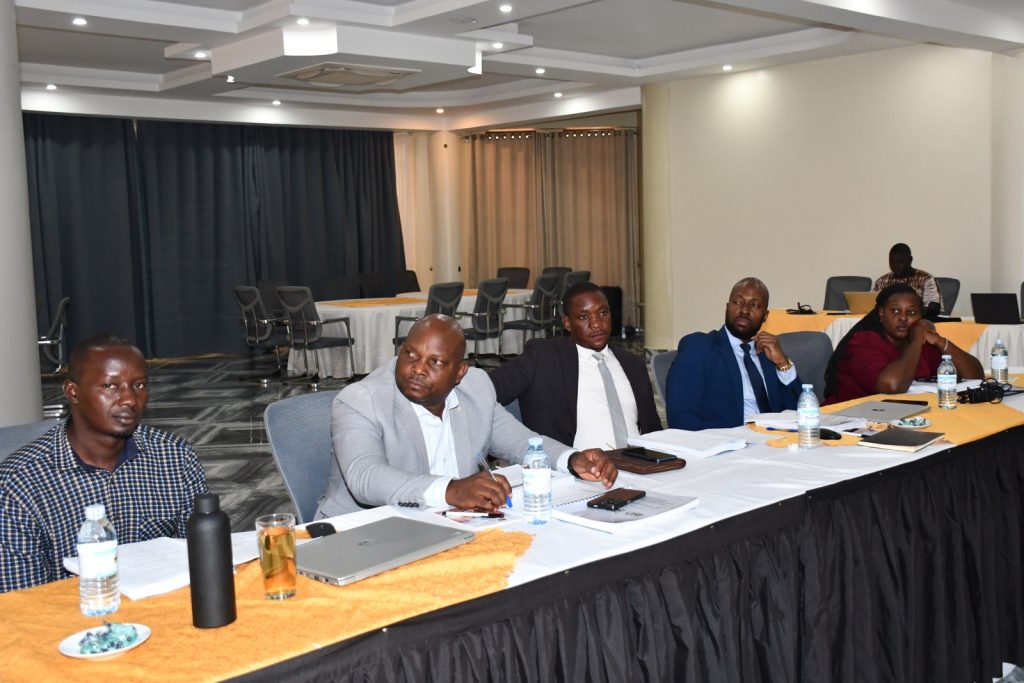
Across the country, Uganda is investing heavily in transport infrastructure, energy generation and transmission, irrigation systems to respond to climate change, industrial parks, digital infrastructure, education, and health facilities. Yet, as Prof. Bbaale cautioned, the success of these investments depends less on the volume of funding mobilised and more on the quality of project preparation and appraisal.
“Economic appraisal must be seen not as a box-ticking exercise, but as a strategic tool for national transformation,” he said. “It enables government to prioritise projects with the highest economic and social returns, minimise fiscal risks, and ensure value for money.”
Prof. Bbaale also underscored the strength of the multi-institutional partnership supporting the programme, noting that it blends global best practices with Uganda’s policy realities. At the conclusion of the training, participants will receive a tripartite certificate jointly issued by Makerere University, the Ministry of Finance, and Queen’s University, recognising their enhanced expertise in public investment management.
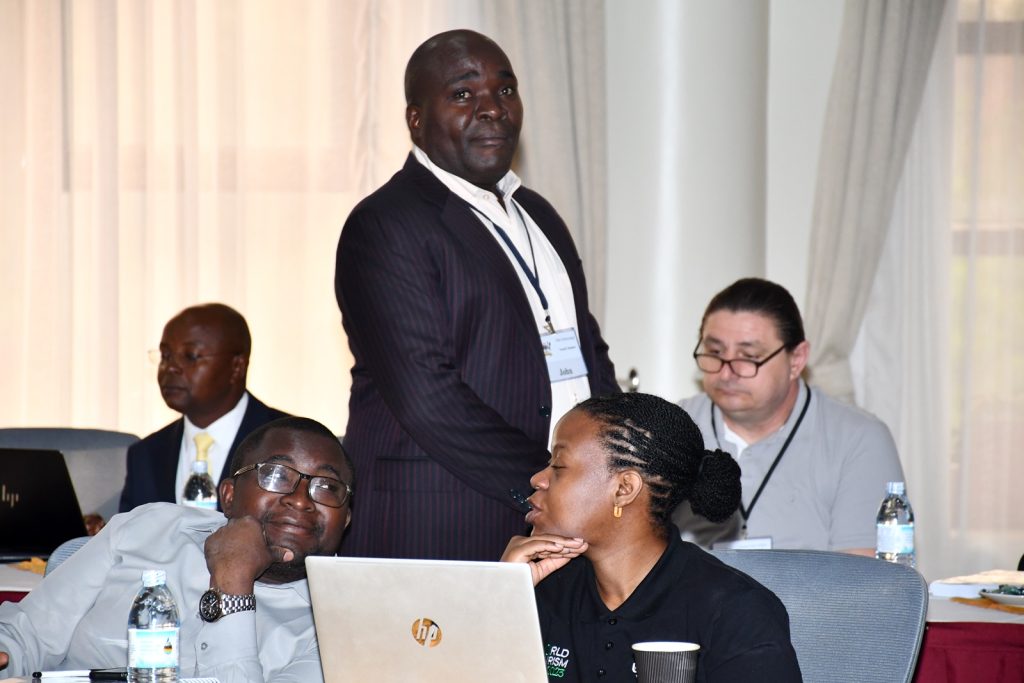
For the Manager of the PIM Centre of Excellence, Dr. John Sseruyange, the training is as much about mindset as it is about technical skills. He encouraged participants to remain disciplined, engage fully, and build professional networks that will endure long after the two weeks in Mbarara.
“The skills you gain here will not only strengthen you as individuals,” he noted, “but will directly influence the quality of public investment decisions made across Uganda.”
As the sessions unfold over the next two weeks, the training stands as a testament to Makerere University’s enduring contribution to national development—building capacity, shaping policy, and preparing public servants to make decisions that drive sustainable growth, economic resilience, and shared prosperity for all Ugandans.
Beyond training, the PIM Centre of Excellence continues to play a broader national role through research and policy advisory services. The Centre has supported the review of Development Committee guidelines and convened national dialogue through its annual Public Investment Management Conference, including last year’s conference themed “Overcoming Implementation Barriers in Public Investment Management for Fiscal Sustainability.”
Business & Management
Dr. Aisha Nanyiti is IEA’s Featured Economist for Jan 2026
Published
1 month agoon
January 8, 2026By
Mak Editor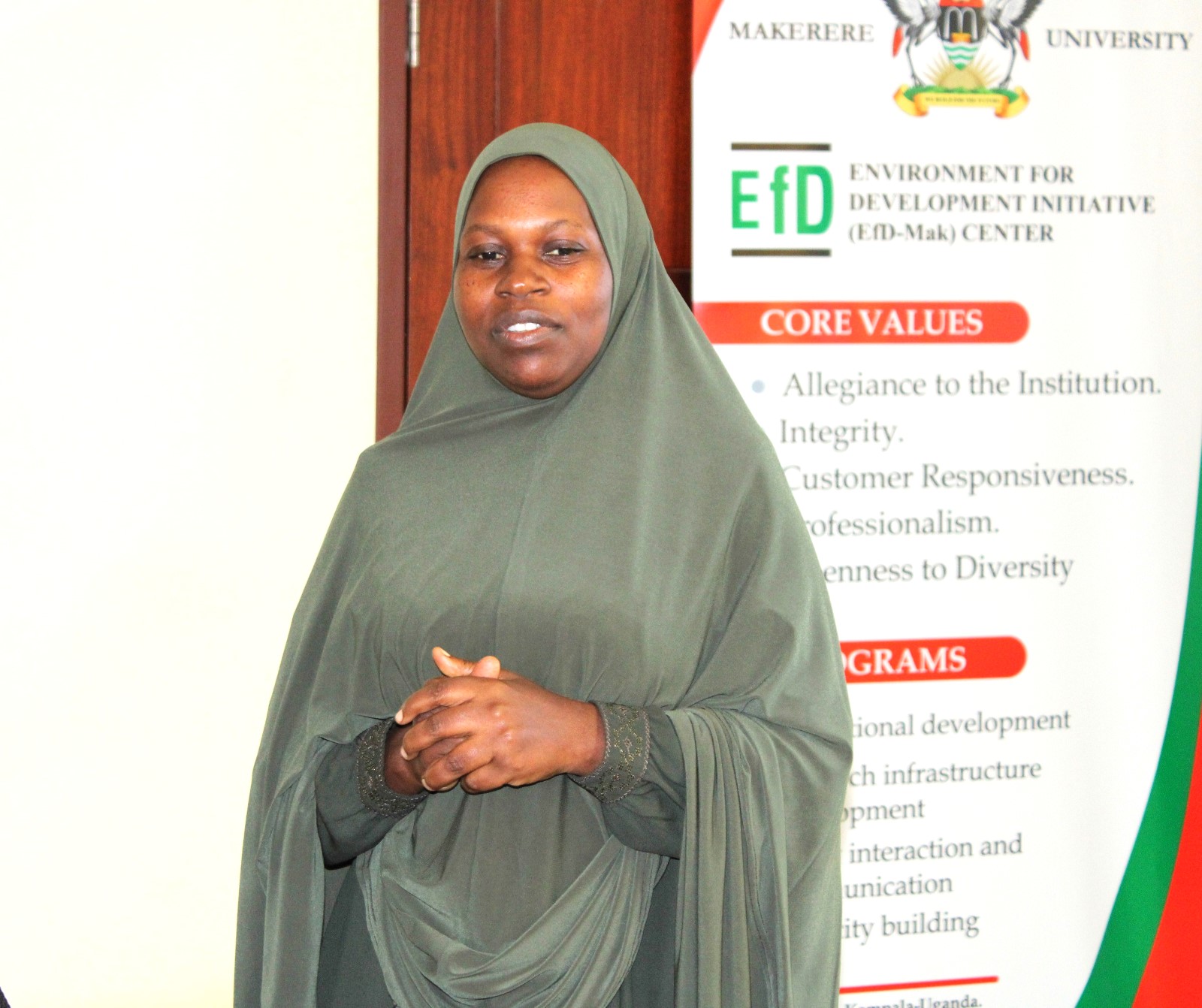
Dr. Aisha Nanyiti is a Lecturer at Makerere University’s School of Economics. She holds a PhD in Development Economics from Wageningen University, The Netherlands. Her research focuses on impact evaluation, causal inference, and behavioural economics, with expertise in Randomized Control Trials (RCTs), Lab‑in‑the‑Field experiments, and survey-based causal analysis. Aisha studies labour and financial markets, gender and women’s empowerment, poverty, and clean energy adoption, bridging rigorous evidence with real-world policy impact. She is also a Research Fellow at the Environment for Development Initiative (EfD‑Mak Centre), contributing to inclusive development and evidence-based policy in East Africa. She is the International Economic Association (IEA)’s featured economist for January 2026.
Trending
-

 Agriculture & Environment2 weeks ago
Agriculture & Environment2 weeks agoFrom Adversity to Excellence: The Inspiring Journey of Makerere’s Best Science Student, Esther Ziribaggwa
-

 General1 week ago
General1 week agoAptitude Exam (Paper 1) Results for the Mature Age Entry Scheme 2026/2027
-

 Health2 weeks ago
Health2 weeks agoDr. Samalie Namukose and the Quiet Work of Making Nutrition Count
-

 Research2 weeks ago
Research2 weeks agoCall for PhD Student Fellowships under H-DATA
-

 Health1 week ago
Health1 week agoHow Jimmy Osuret Turned Childhood Trauma into Evidence for Safer School Crossings
